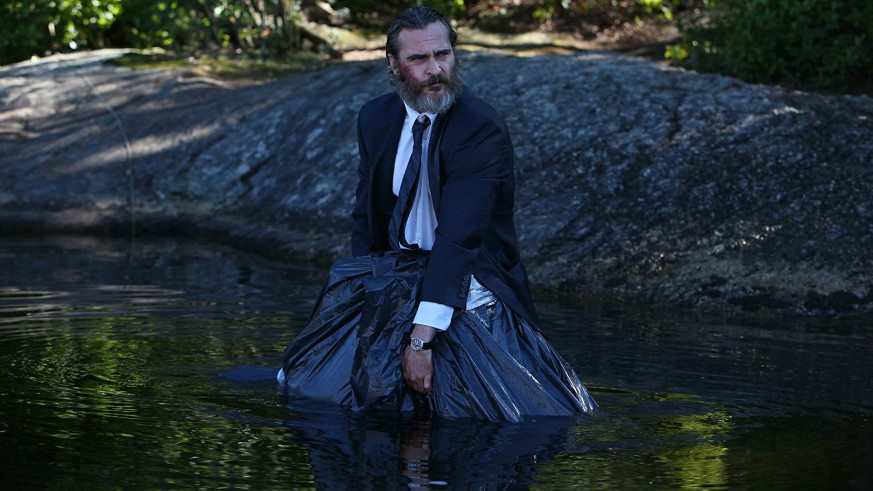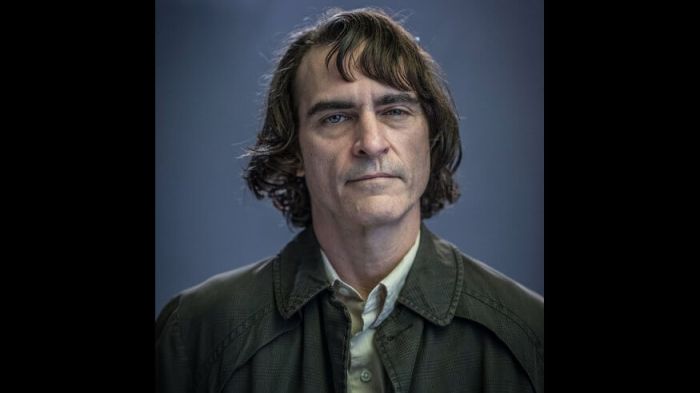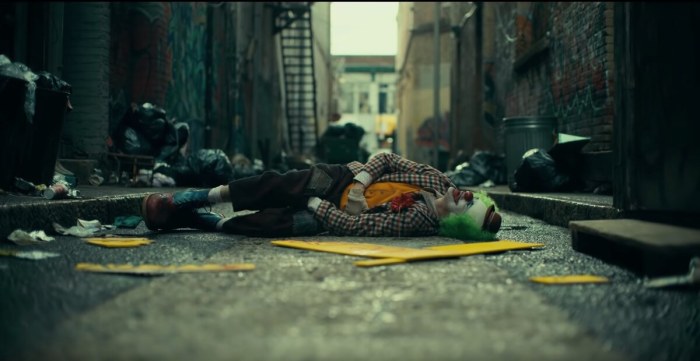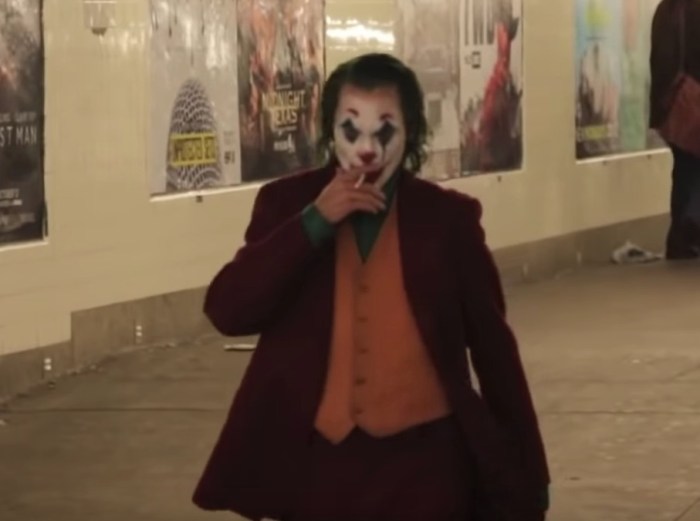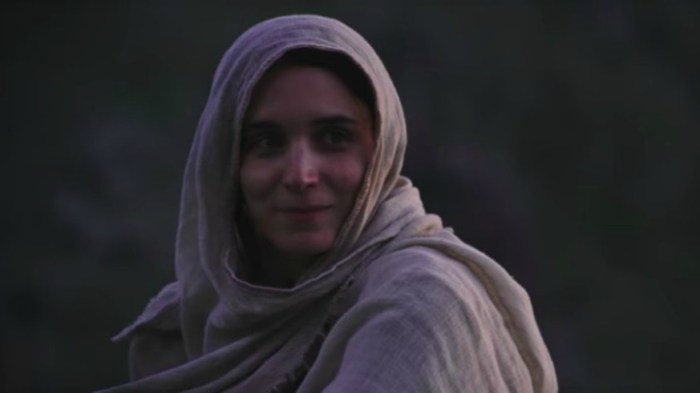In a world where movie stars are media trained to within an inch of their lives, so much so that they often withhold their own viewpoints and personalities from public consumption for fear of offending or being judged poorly, Joaquin Phoenix is the antidote.
The Academy Award nominee is roundly regarded as one of the finest actors of his generation, and he just wants his work to do the talking. Lynne Ramsay, the writer and director of “Morvern Callar” and “We Need To Talk About Kevin,” is cut from the same cloth.
So it makes sense then that they decided to work together on “You Were Never Really Here,” a disorientating but bewitching thriller that revels in making you feel the unexpected, in which Phoenix plays Joe, a combat veteran and former FBI agent that rescues trafficked girls.
I recently had the chance to talk to both Lynne Ramsay and Joaquin Phoenix about “You Were Never Really Here,” and what unfolded made me realize that they are a match made in movie heaven.
What drew you to the book?
LR: It was pretty short and I just read it in a couple of hours. There was something about the character. It was an instinct that I knew I could do something really interesting from it. I wrote it in four weeks. And then I was like, ‘Yeah, I am into this.’ I guess I was brought up on the noir b-movies of the 1950s, and I wanted to make my own version. There was a lot about it that were unusual, too. It had comedy. There was a spectrum of things. I loved the page turning quality of it, too. But, at the same time, the writer gave me the freedom to make it my own thing.
The plays in grey rather than being black or white, positive or negative, was that an appeal?
JP: It was the possibility of what it could be, and that isn’t just negative or positive. We constantly asked, ‘How can we wrap this up into several layers?’ We had an approach of, a scene is never just a scene. This isn’t strictly just about this. It is an opportunity to reveal something more about the character. Or something about the world. That was what was most exciting about this. We never approached it going, ‘This is dark. This is the negative view of things.’ In fact it was constantly fighting against those things. Anytime it felt like it was saying just one thing. We looked to squeeze something else that was unexpected. That was the joy of working on it. We were always trying to uncover something that wasn’t obvious in that moment. Something that is unexpected.
LR: It is always more exciting to me if it isn’t just one tone or one mood. If it is many things. I love when I go to the cinema and feel totally immersed. Years ago I told the story of when I went to see ‘Blue Velvet’ and still being in ‘Blue Velvet’ when I left. To me when something is joined dots to dots it isn’t that exciting to watch. Or if it is something that I could have seen on TV. If it doesn’t feel cinematic. I was hoping to create an experience that you can get embroiled in. I don’t feel a responsibility to make a certain film. You just make films that test your audience. People are pretty sophisticated. You don’t need to see everything to know what is going on. Sometimes what you don’t see is much more terrifying and mysterious than everything being presented on a plate. And I certainly wasn’t trying to make a standard revenge thriller. I certainly wanted it to be a film. Have it go forward. And be propulsive.
What was the creative dynamic like on set?
JP: I think we would talk about all the various possibilities for a moment. Some of the stuff we’d say on set was f***ing ridiculous. But then other stuff we’d be like, ‘That’s kind of interesting.’ We wouldn’t know which one we were going to do. You think about possibilities. You have to to have options floating around. But I don’t think we ever made a decision to do it in a specific way. It just kept on unfolding.
Do you like this side of it, talking about the film?
JP: What did you send me before?
LR: I was just about to say, I just sent him a clip, and again it goes back to Lynch, and it says, ‘I guess you have to talk about the movie. But the movie is the talking.’ Yes, this is part of the process. The most fun part of it is people’s interpretations of it. And then you are like, ‘That’s cool. I never thought of that.’ But to me the creative process is done when you stop editing.
JP: Even when I think I know the reason why I did something I don’t really.
“You Were Never Really Here” is released on April 6.

